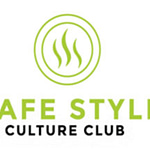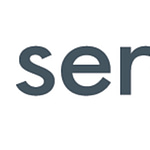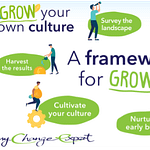An Engage for Success Engagement Sponsorship
London, November 15th, 2023
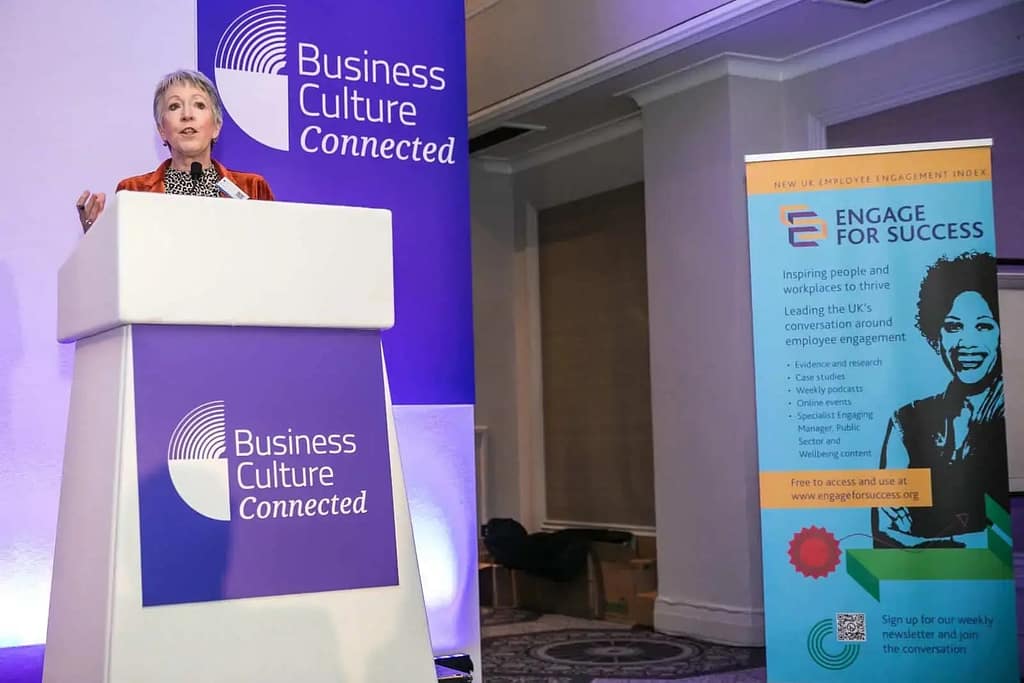
A packed venue with a raft of fabulous speakers, hosted by Jo Moffatt, MD of Woodreed and Engage for Success Advisory Board member in the centre of London, proved to be an enlightening exploration into the endlessly fascinating topic of organisational culture. Featuring a lineup of exceptional speakers, topics ranged from the critical impact of managers on organisational culture to the future of work in a digital era.
First up, Wayne Clarke from The Global Growth Institute set the tone for the day with a compelling keynote on the critical impact of managers, “Culture Custodians,” in shaping positive and productive cultures. The 2nd enabler in Engage for Success’ four enablers of engagement of course, and firmly underscored by Clarke’s Management Top 5 tips. Derived from a global study, Wayne provided insights into fostering a culture of high performing managers.
We all remember our best and worst manager, the emotion’s visceral. But how do we make sure people are left with just the good feelings about their managers? How can we build world class managers fit to manage in our fast-paced digital hybrid world when our human attention span is now 1 second below a goldfish (so I have no hope with this report!) and where attention is the key currency?
Wayne went on to help answer these with his Management Top 5 tips based on his global study of what makes a great manager.
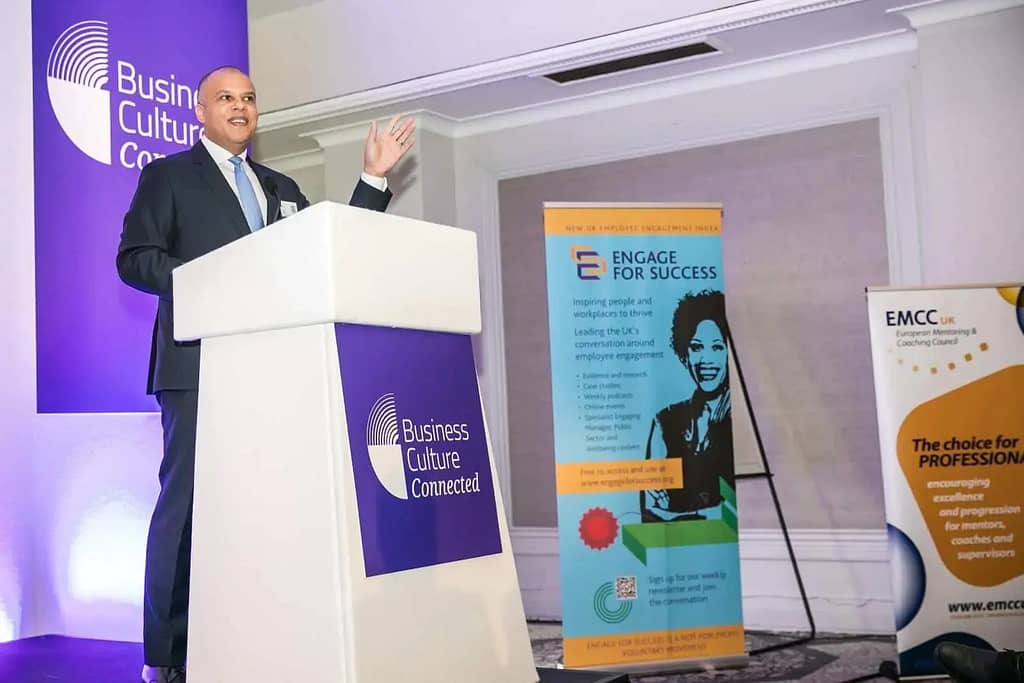
- Strategy – “Help me to get it, like you get it”
Empower managers to understand and communicate the organisation’s strategy, turning it into an engaging narrative.
Address the fact that 42% of managers are unaware of organisational goals.
- Communications – “What I want, when I want, how I want”
Encourage open communication by asking managers what information they need, how often, and in what format.
Strengthen the communication capabilities of line managers.
- Personal Growth – “Make me more valuable, please”
Emphasise the importance of personal growth to retain employees.
Facilitate regular and honest career conversations.
- Customers/Clients
Listen to managers to understand customer and client needs.
Address the belief that 81% of products and services could be improved.
- Leadership Vision
Develop a compelling vision that excites the team.
Ensure alignment between individual ambitions and organisational goals.
Second up on the main stage was a case study from the Mortgage Advice Bureau (MAB) – ‘MABology powered by ‘What does Sharon from accounts think?”
Claire Smith (CPO Movera) but formerly from Mortgage Advice Bureau (MAB) and Derek Bishop from the Culture Consultancy shared the MAB’s case study on co creating a blueprint for culture, that they called their ‘MABology’. Takeaways included the importance of co-creation as key for engagement, involving employees in the process throughout, and training managers to role model the desired culture. They highlighted the significance of measurement and emphasised the need to avoid treating culture as a mere initiative.
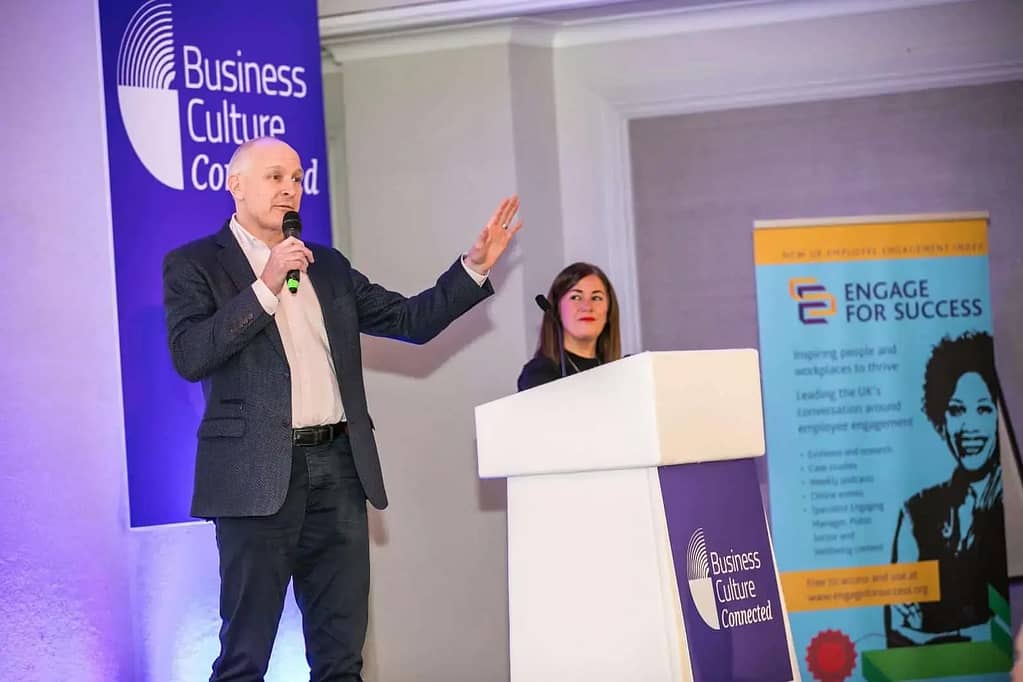
The presentations for the rest of the day then split across three rooms, so I was spoilt for choice for what to attend as all sounded brilliant. Here’s what I choose:
Savoy’s Journey to Extraordinary – and some stories of great Savoy ‘firsts’ too
Niall Culey (MD and Chief Culture Officer of Dragonfish) and Sally Webster from the Savoy shared the Savoy’s story of reimagining purpose and culture. They too stressed the importance of co-creation in developing a purpose that resonates, illustrated by their experience of crafting “be extraordinary” as the core element of Savoy’s purpose. The implementation involved incorporating this purpose into daily activities, creating brand ambassadors among employees, and planning ongoing colleague training and leadership development.
Panel Discussion – Amplifying Employee Voice
The panellists represented a range of sectors with Jenny Johnson from Sage. Morag Norwood bringing her automotive sector experience, Chit Ghee Yeo from Metro Bank and Charlotte West, XPS Pensions group, hosted by Andy Stoker from Studio Banana. Together they discussed strategies for amplifying employee voices to build people-first cultures. Key points included the obligation to listen actively, the role of technology platforms like Glint in facilitating continuous dialogue, and the importance of transparency and inclusivity in feedback mechanisms. Get among your people and listen, really listen then act was a great take away for me.
Mark Heasman’s Recipe for Culture
Mark Heasman, Group CEO of the Provide Community, provided a memorable ‘recipe’ for a cracking culture. Get culture right and the rest will follow, he said. He presented an easy to remember list of ‘ingredients’ using my favourite ‘rule of three’ and some, erm, ‘cracking’ alliteration which delighted the writer in me and seemed to resonate with the rest of the audience too! I’m sure he won’t mind me sharing his secret sauce, so here goes:
Humanity, humour, humility
People are naturally change resistant and uncertainty resistance (as a side note I really recommend looking up Dr David Rock for more on this). Your role as a leader? Try and provide sone certainty out of uncertainty. Always be human, don’t take yourself too seriously, have fun and give your people permission to do the same
Courage, chemistry, cadence
If you want the best culture there will be a degree of risk. A little radical thinking goes a long way. When recruiting choose chemistry over capability, especially in leadership roles. Be aware not everyone will always be on the same page at the same time. Different parts of the organisation run at difference speeds so be cognisant of that. Take your people with you at their own pace.
Vision, villages, victories
Give your people something to rally around, your ‘North Star’ – a defined and motivational purpose. Understand your audience and the micro cultures you might have at your place, as well as taking into account the diversity in your organisations (in the broadest definition of the term). Celebrate success and make your place a joyful place to work.
Talent and Engagement Insights
A session featuring Gattaca’s team and their clients, Alison Jackson from EasyJet and Caroline Parsons from WSP, focused on talent and engagement strategies. The discussion highlighted the importance of being a values-driven organisation, crafting a compelling Employee Value Proposition (EVP), and using every retention tool as an attraction tool. Practical insights were shared, including EasyJet’s creative use of social media to reinforce its EVP and WSP’s commitment to cultural fit in acquisitions.
The Future of Work in a Digital Era
Panellists from diverse organisations discussed the challenges of achieving digital objectives and promoting innovation. Examples like how Cambridge University Press, Dole, and Oracle leverage AI and technology for cultural enhancement were shared. The discussion emphasised the need for leaders to embrace digital transformation and highlighted the benefits of personalisation in the employee experience.
“Culture is what makes workplaces work” Jo Moffatt
In her closing remarks Jo underscored the conference’s central theme – the importance of people and culture in driving organisational success. She highlighted one of the day’s soundbites: “It’s all about the love – the love people have for their community, their colleagues and their line managers”. Culture doesn’t happen in a vacuum. Culture drives success. “Culture is what makes workplaces work.”
The insightful sessions provided a holistic view of the multifaceted nature of organisational culture, from effective management practices to embracing digital transformation. Special thanks to Cathy and the Business Culture Connected team for orchestrating a memorable event, showcasing brilliant speakers and providing some invaluable insights.

Author: Charlotte Dahl, Creative Planning Director at Woodreed and Engage for Success volunteer
LinkedIn: https://www.linkedin.com/in/charlotte-dahl-nee-weston-20704615/

